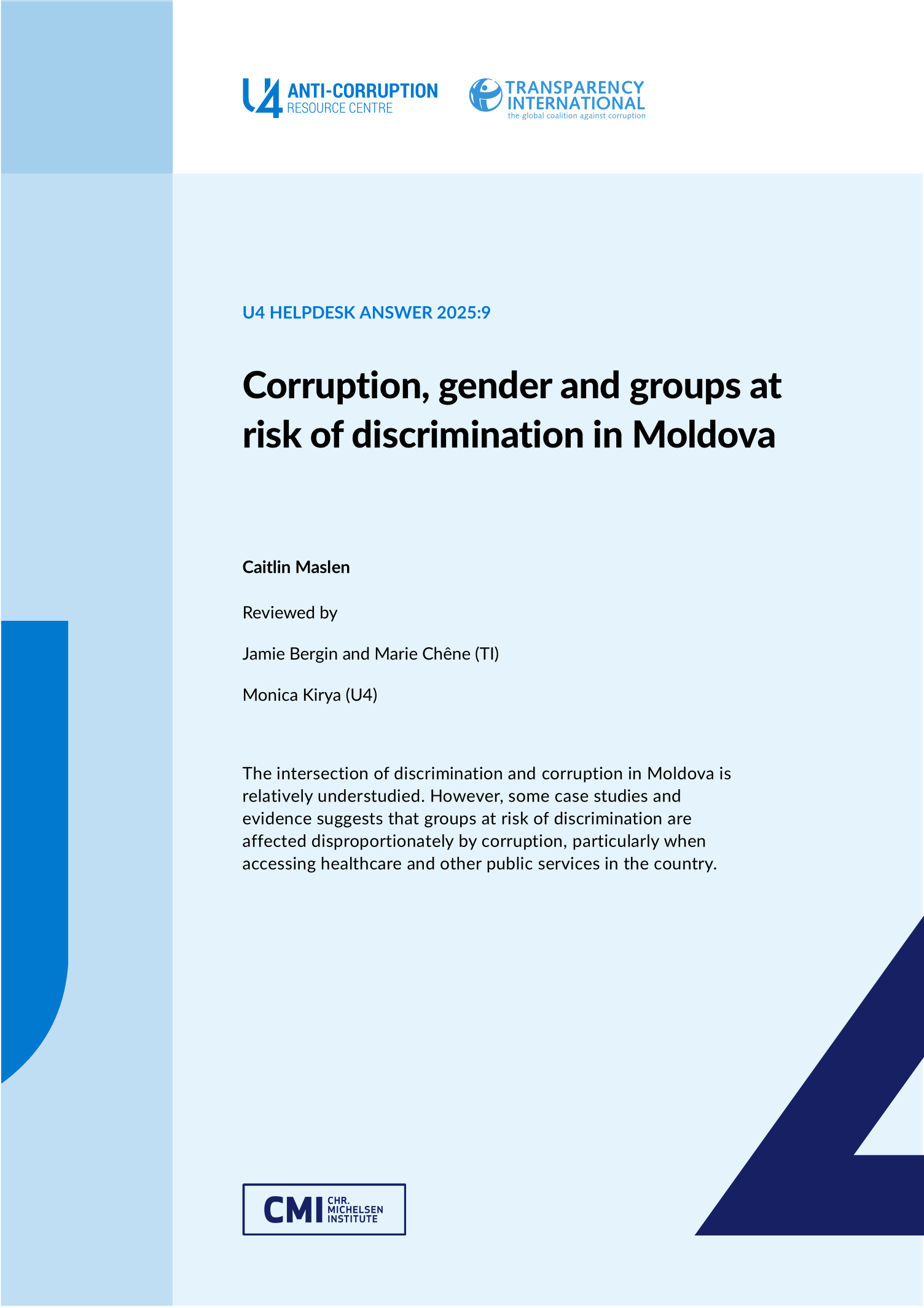Main points
- Moldova ranks highly globally in terms of gender equality (World Economic Forum 2024). However, corruption remains an issue in the country, with relatively little research and national statistics on the gender dimensions of corruption in the country.
- Some evidence suggests that bribery in the health and education sector is an issue for women and girls, as well as a few case studies indicating that sexual corruption may also be a problem.
- Research into the impact of corruption on other groups at risk of discrimination in Moldova is also limited, but some studies have focused on and indicate that refugees are affected by bribery and that people living with disabilities are affected by corruption in the health sector.
- While separately there is attention paid to each issue of gender, corruption and other groups at risk of discrimination, there is still progress needed in harmonising each of them and acknowledging the interrelated and mutually reinforcing nature of the issues in Moldova.
- The literature recommends that the country develop gender-sensitive corruption reporting mechanisms and collect more gender-disaggregated data to bridge the gap between its anti-discrimination and anti-corruption frameworks.


